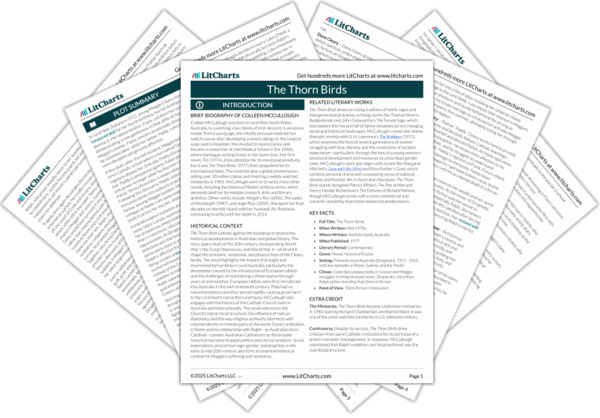Meggie’s difficult pregnancy reflects her emotional suffering. Her relentless sickness and swelling mirror the anxiety and loneliness of her marriage. Even her connection to the unborn child feels strained, touched by an eerie sense of rejection. Refusing to return to Drogheda, she clings to her pride, determined to endure alone. Her cries for Ralph during labor reveal her true longing—she desires Ralph’s love, not Luke’s. Ralph’s arrival, as though he has sensed her suffering from afar, transforms him into both a savior and a lost love. In her most vulnerable moment, Meggie’s heart turns toward the one person who truly mattered to her.
